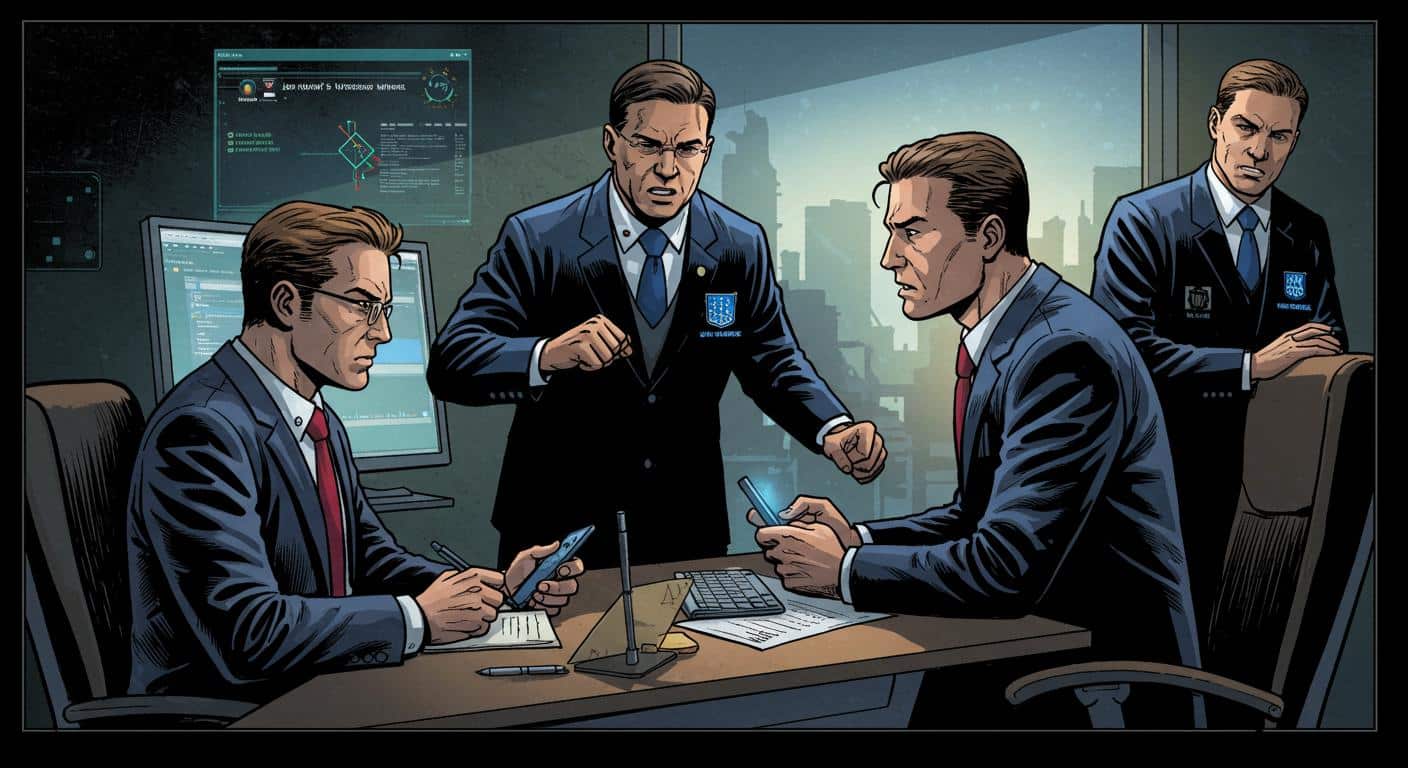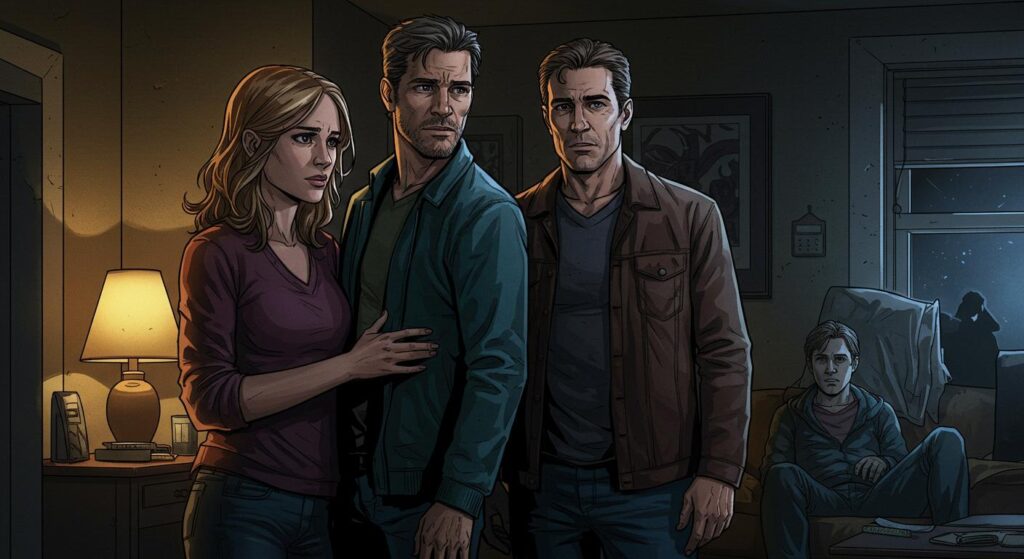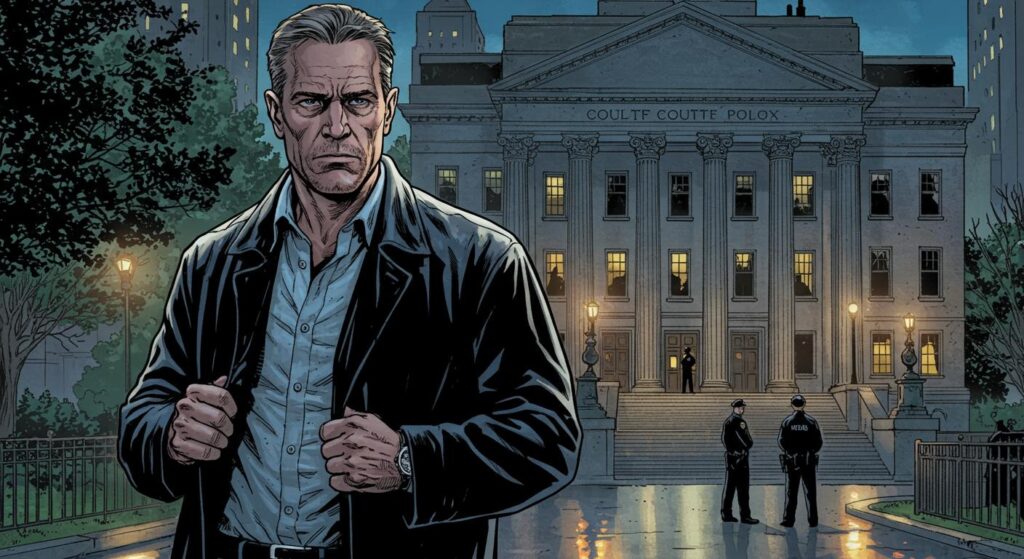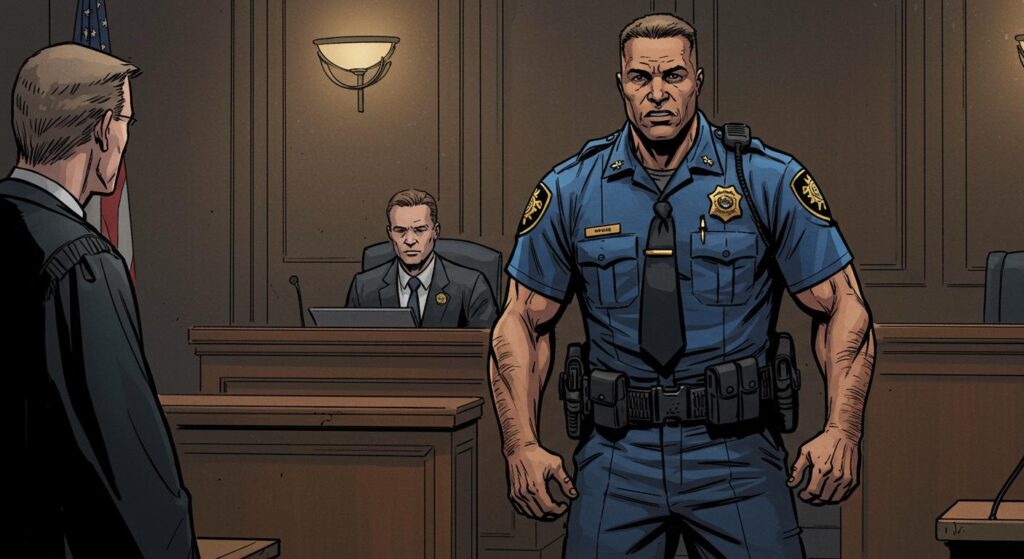There are lawsuits that make you pause and think, “Hmm, that’s curious.” And then there are lawsuits that prompt an involuntary eyebrow raise, accompanied by an almost audible “Seriously?” Enter the Jehovah’s Witnesses’ legal tango with Mark O’Donnell—a saga that lands squarely in the latter category.
A Call, an “Intruder,” and a Lawsuit
In an episode recounted by Friendly Atheist, the central drama began in February 2023 when representatives from eleven Jehovah’s Witness (JW) congregations, feeling the pressure from a grand jury investigation into alleged child abuse and cover-ups, held a conference call with their lawyers. What set this call apart wasn’t just the sensitive subject matter, but the rather casual approach to meeting security: one representative passed the call login details to Mark O’Donnell, a reporter and former JW well-known for supporting whistleblowers and advocating organizational transparency.
Instead of hacking or subterfuge, O’Donnell simply used the provided information, joining the call as any invited participant would. Afterward, he discussed what he’d heard—mainly routine legal instructions—on a YouTube livestream. Details compiled in the reporting indicate the lawyers advised JW leaders to preserve documents and discussed how settlements might play out; nothing that would heat up a Hollywood script, but perhaps uncomfortable for those involved.
When Legal Fears Collide With Digital Mischief
The context for this wary mood is hard to overstate. Pennsylvania’s Attorney General, as described in the outlet’s account, had spearheaded an investigation resulting in criminal charges against several individuals, all stemming from mounting allegations of child sexual abuse within JW congregations. Leaders thus operated in damage-control mode, scrambling to address potential organizational liability.
Despite the call’s pedestrian content, the aftermath was anything but. The lawsuit, now public, accuses O’Donnell of “wiretapping” and inflicting “invasion of privacy”—claims that, at face value, stretch the imagination considering he simply joined a call after being given access. The complaint brands this as a grievous breach worth over $2.8 million in damages. Evidently, the accidental inclusion of a critic is, in the eyes of JW leadership, an offense on par with actual espionage.
What’s particularly striking, according to court records cited by Friendly Atheist, is the timeline. O’Donnell’s participation was not flagged as an issue until long after the conversation had ended, and nearly a year passed before objections were formally raised. The video where O’Donnell discussed the call circulated online for months, unchallenged—a curious delay for a group now claiming severe reputational harm.
Expectation of Privacy and Redefining “Wiretapping”
From O’Donnell’s perspective, detailed in his public statements and legal response, the events defy the logic of secrecy. He points out that joining a meeting by invitation nullifies any legitimate claim to hidden wiretaps or privacy breaches, and much of the information he later discussed was already part of his prior knowledge base. At several points, he notes how the congregations failed to indicate his presence was problematic until well after the fact.
Layered atop the damages claim is another demand: the group wants a roster of all Jehovah’s Witnesses who have communicated with O’Donnell regarding faith matters over the past five years. The litigation’s scope, as the Friendly Atheist report makes clear, effectively asks for the unmasking of journalistic sources—unsurprisingly, a line O’Donnell refuses to cross. His press release underscores the cost—both financial and ethical—of defending his reporting, referencing the $150,000-plus legal bill he now faces.
The move by JW leadership to seek this kind of disclosure starts to look less like a simple case of wounded pride and more like a calculated attempt to chill future dissent and whistleblowing. Does demanding disclosure of sources serve a pressing legal interest, or is it just intimidation dressed in legalese?
Error or Intention? Mushy Boundaries and Strategic Silences
While Friendly Atheist explores the unanswered question of how and why O’Donnell was added to the call in the first place, clarity proves elusive. The story leaves open the possibility of an internal actor deliberately sending the link as a form of whistleblowing—or, just as plausibly, someone simply pressed the wrong button. Either way, the organization’s subsequent legal barrage reads more like a public lesson in self-inflicted wounds than a tightly orchestrated sting operation.
Several online commenters quoted in the piece ponder both accident and design, weighing the odds that this was a slip-up versus a tactical effort to create grounds for suing a critic out of the picture. It’s an odd calculus: has institutional embarrassment morphed into a punitive legal crusade?
Secrecy’s Achilles’ Heel: A Comedy of Errors
Amidst the high-stakes backdrop, the lawsuit itself delivers an odd sense of comic relief. JW representatives now reportedly convene face-to-face with lawyers “to avoid additional interceptions”—a far costlier and less efficient alternative to, say, ensuring call security or double-checking participation lists before airing sensitive matters. The report underscores the irony: perhaps a quick scan of who’s on the line would have forestalled this entire drama.
If oversight in basic meeting logistics opens the door to allegations this grand, one starts to wonder how robust the organization’s other safeguards really are. Should a mistaken invitation to a virtual meeting really result in multi-million-dollar lawsuits—or does this reflect a deeper reflex to litigate every unflattering disclosure?
A Modern Parable of Secrecy, Technology, and Overcorrection
Taken together, this story reads like a modern parable of misplaced priorities, where elaborate legal escalation shields simple missteps, and institutional secrecy collides headlong with digital blundering. Friendly Atheist points out that O’Donnell—who asked for no donations and has simply urged public attention to the process—faces the real-world consequences, while the institution itself, under sustained law enforcement scrutiny, strives to recast itself as the principal victim.
Here, the lines blur: Is this an honest mistake compounded by legal overreaction, or an artful pretext to marginalize a tenacious critic? When organizations use the blunt instrument of a lawsuit to try to cauterize their own digital slip-ups, we’re left with a paradox. Who, exactly, is being protected? And is the real threat in the sharing of information—or in the frantic efforts to bottle it up?
In a legal landscape where a badly forwarded Zoom invite can mushroom into a precedent-testing trial, maybe the real lesson is this: sometimes, the boundary between secrecy and self-sabotage is one misplaced click away.







